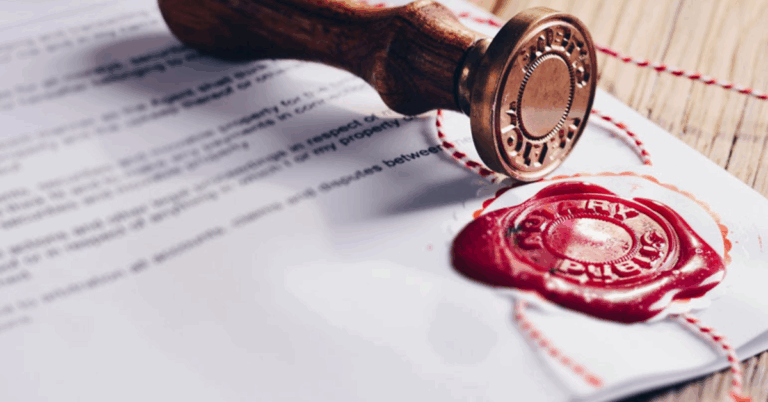How Can Process Server Business Cards Boost Local Networking?
A process server plays a crucial role in the legal system by delivering court documents such as subpoenas, summonses, complaints, and other legal notices. This service ensures that all parties are properly informed about legal actions involving them. While the job may seem straightforward, it involves precision, professionalism, and often navigating challenging situations. Like any service-based profession, establishing trust, reliability, and visibility is key to long-term success. This is where Process Server Business Cards become indispensable. They are not just a piece of paper with contact information—they are a representation of your professionalism, brand, and commitment to excellence.
How Do Business Cards Reflect Professionalism?
The first impression matters immensely in the legal field. When you meet attorneys, court officials, clients, or potential business partners, the small act of handing over a business card can leave a significant impact. A well-designed process server business card conveys that you take your job seriously and pay attention to detail. It signals that you are organized, reliable, and prepared to take on responsibilities. In contrast, not having a card, or worse, having a poorly designed one, can project unprofessionalism and erode trust before you’ve even begun a job.
Why Are Business Cards Still Relevant in a Digital World?
Despite the rise of smartphones, social media, and digital contacts, business cards maintain their importance in face-to-face interactions. They are tangible, easy to share, and can be exchanged quickly without the need for internet access or technology. For process servers who often interact with people from all walks of life—some of whom may not be tech-savvy—a physical business card ensures accessibility and simplicity. Additionally, in professional environments like law offices, a business card is still expected as part of standard networking etiquette.
What Information Should a Process Server Business Card Include?
A business card for a process server should be both informative and concise. At a minimum, it should include your full name, job title (e.g., Certified Process Server), business name (if applicable), phone number, email address, and office location or service area. Including your website and a professional logo adds an extra layer of legitimacy. Some servers also choose to include a brief tagline like “Fast. Reliable. Professional.” or list services such as skip tracing, court filing, or document retrieval. The goal is to give enough information to encourage follow-up without cluttering the card.
How Should Design Influence a Process Server’s Business Card?
Design is not just about aesthetics—it’s about functionality and identity. A clean, modern design with readable fonts and professional colors reflects credibility and seriousness. Dark blues, grays, blacks, and whites are popular in legal service industries because they suggest authority and trustworthiness. The layout should have a logical flow, with your name and title clearly visible and your contact information easy to find. Avoid gimmicks or overly ornate fonts, as these can make the card look amateurish. Consider using both sides of the card—one for your primary details and the other for your logo or services.
What Materials and Finishes Are Best for Process Server Business Cards?
The material and finish of your card also speak volumes. Thick cardstock gives a sense of quality and durability. Matte finishes offer a sleek, professional look and prevent glare, while gloss finishes can make colors pop and are easy to clean. Embossing or foil stamping can add a touch of elegance, especially for highlighting your name or company logo. However, simplicity often wins in the legal world—choose finishes that enhance legibility and sophistication without being flashy.
When and How Should Process Servers Use Their Business Cards?
Business cards should be carried at all times and handed out strategically. Ideal moments include meetings with attorneys, visits to law offices, court appearances, networking events, industry expos, and even casual encounters where your services come up in conversation. Always have a few in your wallet, glove compartment, or service bag. It’s also a good practice to include a card with documents you deliver or attach it to invoices and thank-you notes. The more visible and accessible your contact information is, the better your chances of getting repeat business and referrals.
How Can Business Cards Improve Local Networking?
Many process servers work within specific jurisdictions or regions. Business cards are especially effective in strengthening local connections. Handing your card to paralegals, clerks, and legal assistants in your area can lead to frequent referrals. Cards can also be left with law firms, posted on community bulletin boards, or distributed at local legal seminars. Because legal professionals often work under tight deadlines, having a reliable process server’s contact info readily available can make you the go-to choice in a pinch.
Should You Customize Business Cards for Different Clients?
While one general card is usually sufficient, having a few variations can be beneficial. For instance, if you offer specialized services for law firms versus private clients, you could have different versions that highlight those tailored offerings. Some process servers even create cards with QR codes that link to specific service pages or client portals. Customizing cards shows that you understand and anticipate the needs of your clients, giving you an edge over competitors who take a one-size-fits-all approach.
Can Business Cards Help with Brand Recognition?
Yes, branding is more than just a logo—it’s how people perceive you and your business. A business card with consistent colors, typography, and a memorable design builds brand recognition. When someone sees your card, they should immediately associate it with the quality of your service. Over time, a strong visual identity creates familiarity and trust. Pairing business cards with branded materials such as letterheads, envelopes, uniforms, and vehicle decals creates a cohesive image that reinforces your professionalism.
How Do Business Cards Compare to Other Marketing Tools?
Business cards are a low-cost, high-impact marketing tool. While online advertising, social media, and search engine listings are essential, they often require ongoing investment and effort. Business cards, by contrast, are a one-time cost and continue to promote your business every time they are passed along. They’re also highly personal. When someone receives your card during a conversation or job, it becomes a physical reminder of that interaction—something that no digital ad can replicate.
What Are Common Mistakes to Avoid with Process Server Business Cards?
Avoid overloading your card with too much text or information. Keep it focused and legible. Don’t use low-quality paper or printing services, as this undermines your professionalism. Steer clear of gimmicky designs, unprofessional fonts, or color schemes that don’t align with legal industry standards. Also, make sure your information is up to date—incorrect phone numbers or email addresses not only frustrate clients but also damage your credibility. Finally, don’t forget to check for spelling and grammar mistakes—these details matter more than you think.
How Can Process Servers Get the Most Out of Their Business Cards?
To maximize the value of your business cards, integrate them into a broader marketing strategy. Use them to drive traffic to your website, encourage phone consultations, or promote limited-time offers for new clients. Combine your cards with online tools—such as digital business card scans or CRM systems—to keep track of where and to whom you’ve distributed them. Monitor which networking opportunities bring the most leads and refine your card strategy accordingly. The more proactive and strategic you are, the more value you’ll get from this traditional yet powerful tool.
Final Thoughts: Are Business Cards Still Worth It for Process Servers?
Absolutely. In a profession built on trust, reliability, and attention to detail, business cards serve as a compact yet powerful marketing and networking tool. They reinforce your professional image, make your contact details accessible, and help establish lasting impressions in a competitive industry. By investing in high-quality, thoughtfully designed process server business cards, you set yourself apart from the crowd and build a strong foundation for ongoing success.







